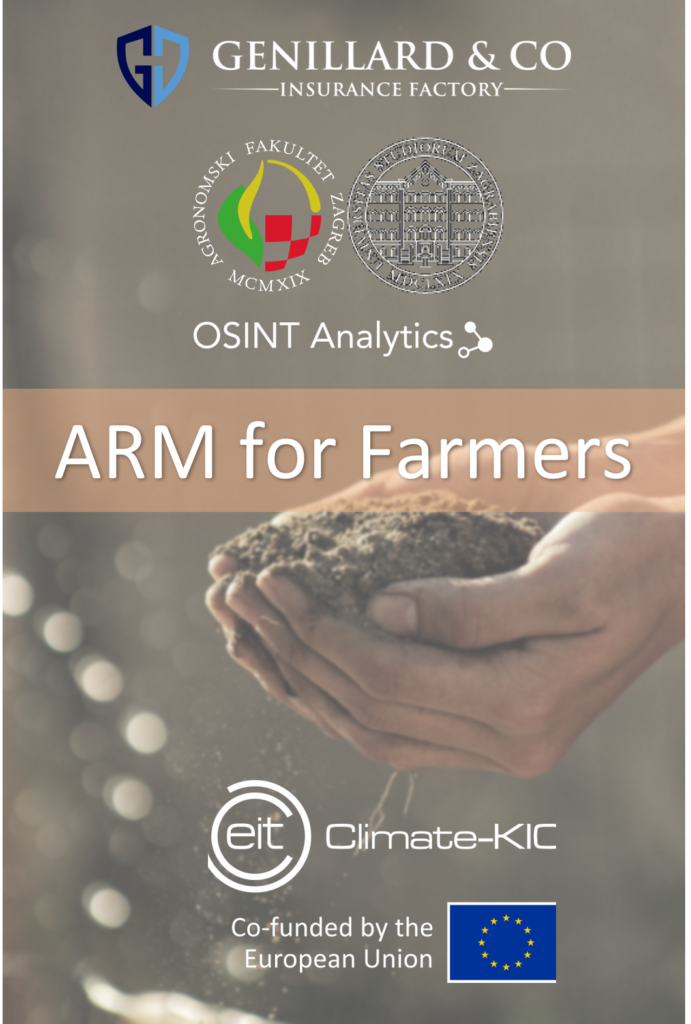
Our initiative ARM for farmers, funded by Climate-KIC, reached another milestone on 26.10.2021 when we conducted a successful virtual stakeholder workshop with the farming community in Croatia. Our interest was to learn from local farmers about their needs and ideas regarding the Agriculture Risk Metrics platform in supporting their climate risk management activities and climate change adaptation measures. Whilst climate change information in various forms is available, it is often not easily accessible for the public, including the farming community. Frequently it is not delivered in such a way that the risk is fully comprehensible, and decision-making made possible.
We were pleased to welcome ten participants from the Croatian and Italian farming and agricultural research community, as well as from the Croatian Ministry of Agriculture. Prof. Mario Njavro from the University of Zagreb started off the day by presenting recent scientific results pertaining to climate change impact on agriculture and the possibilities offered by using data and technology. Then, the participants were asked in small breakout groups to think of pain points and what is needed in order to get closer to climate resilient farm management.
During the workshop, the participants designed their own user stories and defined which information they would need to apply to their daily business. With the support of a web-based visual cooperation platform, all findings were gathered and discussed in the plenary session afterwards. The user stories were clustered according to the type of request, so as to explore similarities and differences between them. The resulting user stories range from requests for specific weather forecasts to advice on financial measures for decision-making. In conclusion everyone was asked to vote for the user stories of highest interest to obtain a final evaluation.
Based on these results, the project team is now developing a new functionality for ARM which addresses the identified most pressing information gap and to better meet the needs of the farmers.
Furthermore, we learned that the farmers are already seriously considering buying agricultural insurance to cope with climate change impact, alongside developing changes in their farming techniques and in their selection of crops. The systemic risks of drought and spring frost were sited from experience as being the most critical.
We would like to thank all attendees for their active participation and look forward to presenting our final “ARM for Farmers” product in a follow-on workshop planned for the end of the year.

